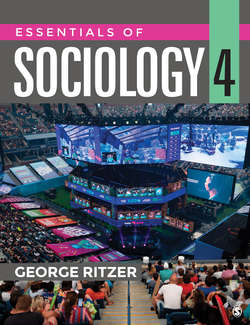Читать книгу Essentials of Sociology - George Ritzer - Страница 121
На сайте Литреса книга снята с продажи.
A Postconsumer Culture?
ОглавлениеMany people are now doing something that would have been unthinkable only a few years ago—saving money. The personal savings rate in the United States has changed over the past few years. In late 2007, it dipped to close to 3 percent of disposable income. At the height of the Great Recession in 2008 and 2009, it spiked to more than 8 percent. By late 2018, even though the economy had improved considerably, the personal savings rate was still a comparatively high 6 percent (U.S. Bureau of Economic Analysis 2018). People who are saving more of their money are obviously using less of it to consume.
These changes in the behavior of consumers and their attitudes speak to a change in the larger value system. Consuming less is a sure indication of at least a temporary decline of consumer culture. It may even be the beginning of a postconsumer culture. Among the characteristics of such a culture, beyond buying less and saving more, are sharing more things in the “sharing economy” (Belk 2014; Sundararajan 2016), renting consumer items (such as dresses on sites like Rent the Runway), taking pride in buying less expensive or even recycled items, buying less showy brands (a Kia rather than a BMW), dining at home more often than eating at restaurants, and showing a greater concern for the environment in terms of what we buy and, more important, do not buy. It is not clear that we are in a postconsumer culture, and if we are, it is uncertain how long it will last. However, just as we entered what is best described as a consumer culture in the last half of the twentieth century, it is at least possible that we are entering a postconsumer culture in the first half of the twenty-first century.
Another chink in consumer culture has been created by organized groups actively seeking to subvert aspects of both consumer culture and the larger culture. The success of Burning Man is one indication of such subversion. Begun in 1986, this annual weeklong event in Nevada’s Black Rock Desert today attracts 50,000 participants who commit themselves during their stay to self-expression, decommodification (for example, cash transactions between participants are banned), and community building (Chen 2009; Jones 2011).
